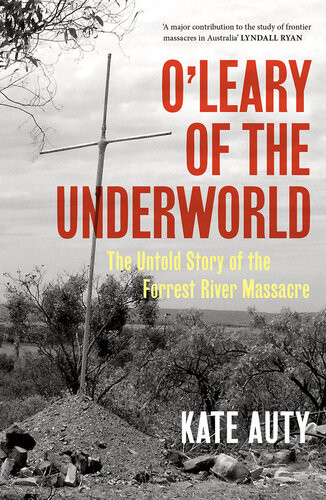

Most ebook files are in PDF format, so you can easily read them using various software such as Foxit Reader or directly on the Google Chrome browser.
Some ebook files are released by publishers in other formats such as .awz, .mobi, .epub, .fb2, etc. You may need to install specific software to read these formats on mobile/PC, such as Calibre.
Please read the tutorial at this link: https://ebookbell.com/faq
We offer FREE conversion to the popular formats you request; however, this may take some time. Therefore, right after payment, please email us, and we will try to provide the service as quickly as possible.
For some exceptional file formats or broken links (if any), please refrain from opening any disputes. Instead, email us first, and we will try to assist within a maximum of 6 hours.
EbookBell Team

5.0
100 reviewsA powerful investigation that reveals the deep injustices inflicted on Aboriginal people in the Kimberley in the 1920s
In June 1926, a posse of police officers and white civilians murdered at least twenty Aboriginal people near the Forrest River Mission in the Kimberley. After the massacre, a conspiracy of silence descended. Witnesses vanished. Charges against two of the officers were dropped for insufficient evidence.
One of the massacre's perpetrators was Bernard O'Leary, a former soldier whose land holding was known as 'the underworld'. At the 1927 royal commission into the killings, O'Leary was portrayed by his lawyer as a simple honest bushman who had been framed. In this powerful account, Kate Auty argues that O'Leary was in fact 'vicious, brazen and a bullshitter', with 'a propensity for brutality'. Although never charged, he played a leading role in the murders, and his duplicitous testimony thwarted the commission's work.
In electric prose, Auty depicts O'Leary as a merciless killer, while the apparatus that concealed his crimes is portrayed with great realism and clarity. Driven by both forensic and moral judgement, the book exposes the injustices embedded in Australian settlement history, and the culture of denial that has prevented truth-telling in this country.
'A major contribution to the study of frontier massacres in Australia' —Lyndall Ryan
'Powerful and passionate ... a timely reminder that our colonial past should not be a foreign country: it's our place, and we all need to know the awfulness of what happened here.' —Patrick Dodson